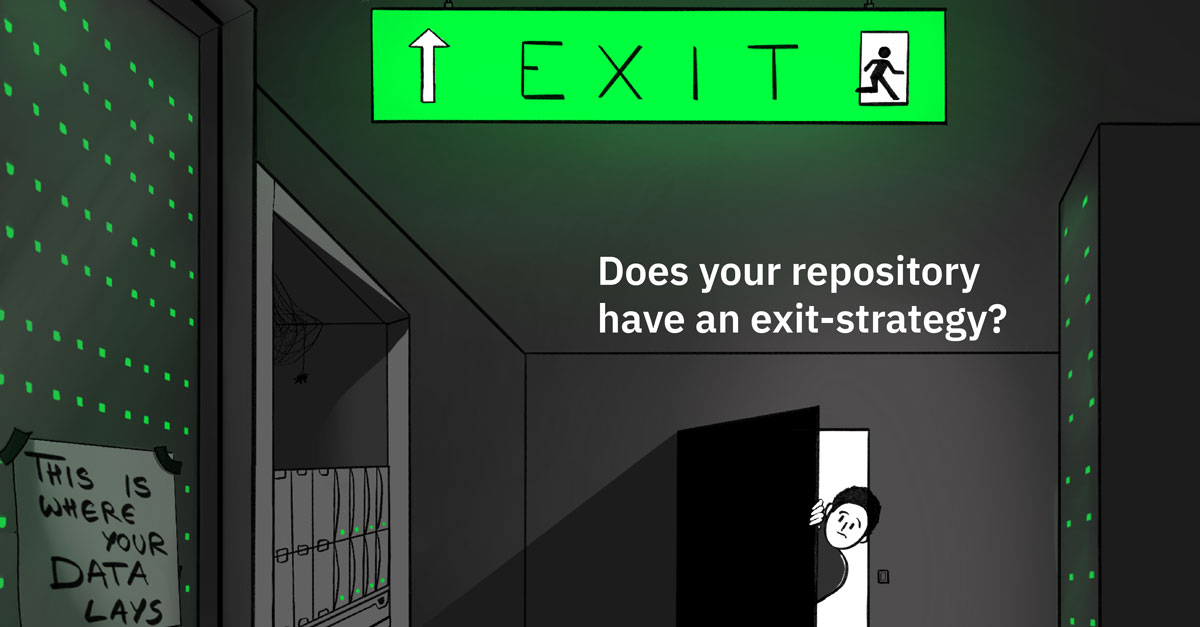Scientists should pay attention to the exit strategies of repositories, as these ensure the long-term availability and security of research data.
Local drives are not a good place to store important research data. Research data repositories, in which data can be professionally managed, annotated, archived and also published so that it is available securely and for the long term, are much better suited for this purpose. However, even published data runs the risk of being lost if repositories or digital archives are closed down. If this happens, the stored data can become inaccessible, which can have serious consequences for both ongoing and future research. Unfortunately, it is not uncommon, but often unexpected, for repositories to be discontinued for a variety of reasons: lack of sustainable funding, technological obsolescence or strategic decisions by the operating institution.
Dorothea Strecker provides an overview of the situation in a talk (on youtube) on her recently published article in Quantitative Science Studies, MIT Press.
Also according to two studies in Nature (doi: https://doi.org/10.1038/d41586-024-00616-5) and Jasist (https://doi.org/10.1002/asi.24460), millions of research papers worldwide are at risk because many repositories are hosted on servers whose funding is not permanently secured. If these repositories cease to operate, scientists are faced with the problem of how to secure and migrate the collected data. This can only be prevented if the operators have a so-called “exit strategy” – a well-developed plan for an exit from productive operation – and implement it reliably.

In addition to long-term archiving, an exit strategy should also include a clear responsibility structure. This can, for example, provide for the transfer of data to other, more sustainable archives. Certificates for repositories, such as CoreTrustSeal, require repositories to develop clear strategies to ensure that data remains accessible in the long term – regardless of whether the repository itself is still active or not.
Floppy disks and propietary formats
Building exit strategies is also crucial from a technical perspective. In the ever-evolving digital landscape, repositories need to ensure that their data formats and storage systems remain compatible with future technologies. This requires regular review and adaptation of systems to avoid valuable data being stuck in outdated formats that are no longer accessible and interpretable in the future. This applies in particular to proprietary formats.
The scientific community has a collective responsibility to provide and use sustainable and trustworthy infrastructures for access to research data. Repositories without well thought-out exit strategies not only jeopardize current data holdings, but also trust in the digital scientific landscape as a whole.
Pay attention to the exit strategies of the repository operators and journals on which you store research data. In our Knowledge-Base we have compiled a number of recommended repositories for you. And of course: the two repositories operated by NFDI4Chem, Chemotion and RADAR4Chem, are not only sustainable, but also have a well-developed exit strategy!